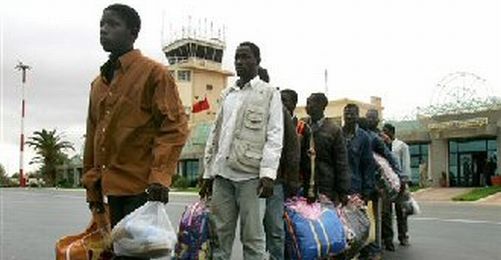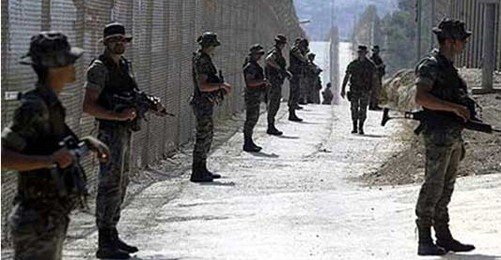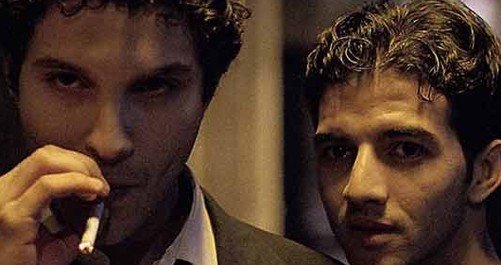Why are the majority of young Moroccan people losing interest in politics?
 For several reasons. First of all, there's the cultural factor. Moroccan culture, which is part of the Arabo-Islamic one, considers that politics are linked to old people. Dealing with public issues is part the domain of the elder, age being linked to knowledge and know-how. Hence the word sheikh: tribe leader or wise man. Thus, young people find themselves excluded from this sphere. The second factor is linked to the recent symbolic of this word, politics. We still hear people repeat, "Politics always lead to prison." During the 1960's, 70's and 80's, citizens considered those who were involved in politics as regime opponents. This is the Moroccan left-wing parties' legacy. Several youngsters keep away from politics out of fear. There is another factor linked to the functioning of political parties in Morocco. Parties often contribute to keeping young people away from politics since only the elder lead these political groups. In fact, in our country, the presidents of the youth sections of these parties are sometimes more than 50 years old! Another factor is linked to political activism. In western democracies, politics are a means of social promotion. In Morocco, this is not the case. Then there's the reality of Moroccan university.
For several reasons. First of all, there's the cultural factor. Moroccan culture, which is part of the Arabo-Islamic one, considers that politics are linked to old people. Dealing with public issues is part the domain of the elder, age being linked to knowledge and know-how. Hence the word sheikh: tribe leader or wise man. Thus, young people find themselves excluded from this sphere. The second factor is linked to the recent symbolic of this word, politics. We still hear people repeat, "Politics always lead to prison." During the 1960's, 70's and 80's, citizens considered those who were involved in politics as regime opponents. This is the Moroccan left-wing parties' legacy. Several youngsters keep away from politics out of fear. There is another factor linked to the functioning of political parties in Morocco. Parties often contribute to keeping young people away from politics since only the elder lead these political groups. In fact, in our country, the presidents of the youth sections of these parties are sometimes more than 50 years old! Another factor is linked to political activism. In western democracies, politics are a means of social promotion. In Morocco, this is not the case. Then there's the reality of Moroccan university.
During the 1960's, 70's and 80's, the students union, l'Union nationale des étudiants marocains (UNEM) was not only a very strong union but also and above all a political training school for students. Nowadays, it nearly doesn't exist anymore. There's a sort of a political void in Moroccan universities. Nowadays, when it comes to politics, technocrats are more popular than politicians. Same thing for education, private schools prevail over public university.
Mohammed VI seems to be the favourite political persona among young people. What are the reasons?
The incomparable cannot be compared. In Morocco, the king has a constitutional position that places him above everyone. Actually, young people reproduce the stand taken by the media and by national politics. It's a kind of mimicry. Consequently, all criticism falls on the government, the Parliament, political parties or persons close to the king.
Certain aspects of the king also fascinate young people: his relaxed side, the photos where we see him in jeans or on a jet ski. We shouldn't forget that the monarch is known as a sponsor of new forms of urban music: rap, fusion...
Why do you think that young people amalgamate politics and community life?
The present king has given a lot of importance to civil society. During the past ten years, the monarch has honoured several NGO directors.
There is also the National Initiative for Human Development (Initiative nationale de développement humain - INDH), a royal project that has associated local authorities and associations. Several youngsters have invested themselves in this project. Political parties have relied on civil society actors to present them as candidates for elections. This explains the amalgamation between the two sectors. Deep down, today, there are no frontiers between the actions of associations and those of partisan politics.
Young people consider religion as a taboo. What are the reasons?
We live in a political system where all actors and all trends cling to the religious frame of reference. Even those who claim their secularity are not capable of launching an open debate on the place religion occupies in public life. Religion is a taboo even for them. Moroccan society is a conservative society where religion still plays a very important social role. Even the monarchy finds its legitimacy in Islam.
When we talk about youth, the mechanisms of their socialisation need to be taken into consideration: the family and public school. Religious values are still very present within both these structures. Young people do not discuss religion because they're not used to it. Islam is a taboo for the whole Moroccan society. However, it is interesting to note the contradictions between urban youngsters' conception of religion and their everyday behaviour, their relation to sex, to alcohol... If for young people, religion is classified in the box of the sacred, and considered as a taboo, it's a spontaneous, inherited position. It is also maybe a way to avoid getting into detail to justify their behaviour.







